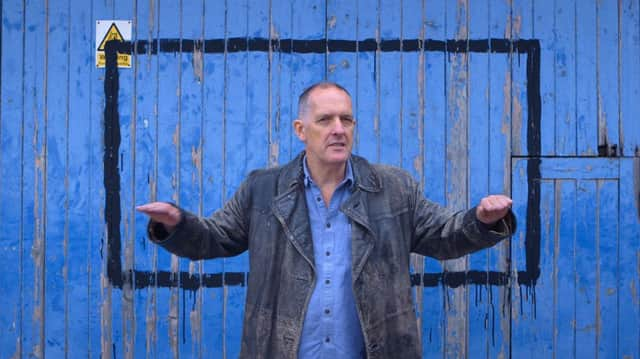Midges mimic literary moths at Wigtown Book Festival


The smaller scale festivals have their own unique aesthetic, and, in contrast to the Edinburgh International Book Festival, the events start to speak to each other. Cathy Rentzenbrink was visibly affected on stage as she talked about her moving memoir, in which she details with awful honesty how a car accident left her brother in a persistent vegetative state. The word “coma” seems to imply something calming and dream-like, while the actuality is dealing with a body slowly destroying itself. How the mind and the body interact was taken up by Suzanne O’Sullivan, discussing her book on psychosomatic illnesses. She showed the audience a video, in which players were passing basketballs between each other. They were told to count the passes by the white team – and many in the audience correctly identified the number of passes. There was a gasp when she also pointed out that half-way through the video a person in a gorilla costume walked into shot and waved – most of the audience had managed not to see it. Authors increasingly have to use multimedia presentations, but it’s rare to see it done so significantly. The philosopher Raymond Tallis also looked at questions of the body and mortality in a lecture about his new book, The Black Mirror. By looking at his own corpse, he produced a wonderful panegyric to living; a secular hymn to how amazingly complex our lives are. The body came back in question with Gavin Francis, ably chaired by Chitra Ramaswamy, where you could hear the audiences’ hearts beat as he played the sound of hearts beating. His book’s title, Adventures In Human Being, might be the manifesto for the festival as a whole.
Maybe it’s the intimacy of the festival as a whole that encourages such openness. The Reverend Richard Coles managed to be sincere without being pious. He spoke about how, while still in the band The Communards, he lied to friends about being HIV positive. It was a kind of yearning to belong that found its ultimate form in his conversion to Christianity. Religion was also the theme of AN Wilson, whose new title, The Book Of The People, is a plea for us to take the Bible seriously again. Wilson’s breadth of reference and range of topics seemed effortless.
Advertisement
Hide AdBut it’s not all highbrow literature and moral seriousness. Wigtown’s Got Talent, which surely should be drawn to the attention of the Trades’ Description Act, was enlivened not just by Phill Jupitus compering the whole event, but the mordant comments of children’s author Philip Ardagh, whose sardonic asides were the highlight of the evening. Simon Wroe and Laura Mitchison hosted an experimental dinner, where the courses are designed to invoke specific memories: imagine Proust’s madeleine and lime tea writ large. Strangers started exchanging childhood recollections and the whole afternoon was translated into an avant-garde soundscape. It was mildly bewildering and completely unforgettable.
Liz Lochhead spoke to a packed house, and read new work – “if I read new stuff at least I know I’ll not be giving you the same stuff as I did last time I was here”, she quipped. A new commission, to write a piece inspired by the 200th anniversary of Wordsworth and Coleridge’s Lyrical Ballads was classic Lochhead: wry, indignant and taking the Big Boys of Romanticism down a significant peg or two. She also discussed her new play, Thon Man Moliere. Having adapted three of his plays, she has turned her attention to his life, and in particular his strange relationship with the child of his former lover.
Taking its inspiration from the New York storytelling phenomenon The Moth, Wigtown had The Midge – smaller and sharper said the artistic director Adrian Turpin. Once again it transpired to be a curiously moving event, with frequent chair Peggy Hughes and poet in residence Marjorie Lofti Gill providing particularly poignant stories. The theme of the event was “lost and found”, and at the end, one audience member discovered a long lost photograph of a relative hanging on the wall of the venue. As I said, surreal.
The buzz of the whole place was enhanced by having Shoo Rayner sketching the authors, chairs and audience, and Robert Twigger photographing the same with a blackboard detailing their message to the world. “You have many lives to live” read one, and the festival seemed to incarnate that idea. Or, as the novelist Neel Mukherjee said, the point of books is to learn about the lives of others. Put a different way, I winced as someone walked past with a T-shirt proclaiming “Be careful or you’ll end up in my novel”.
Until tomorrow